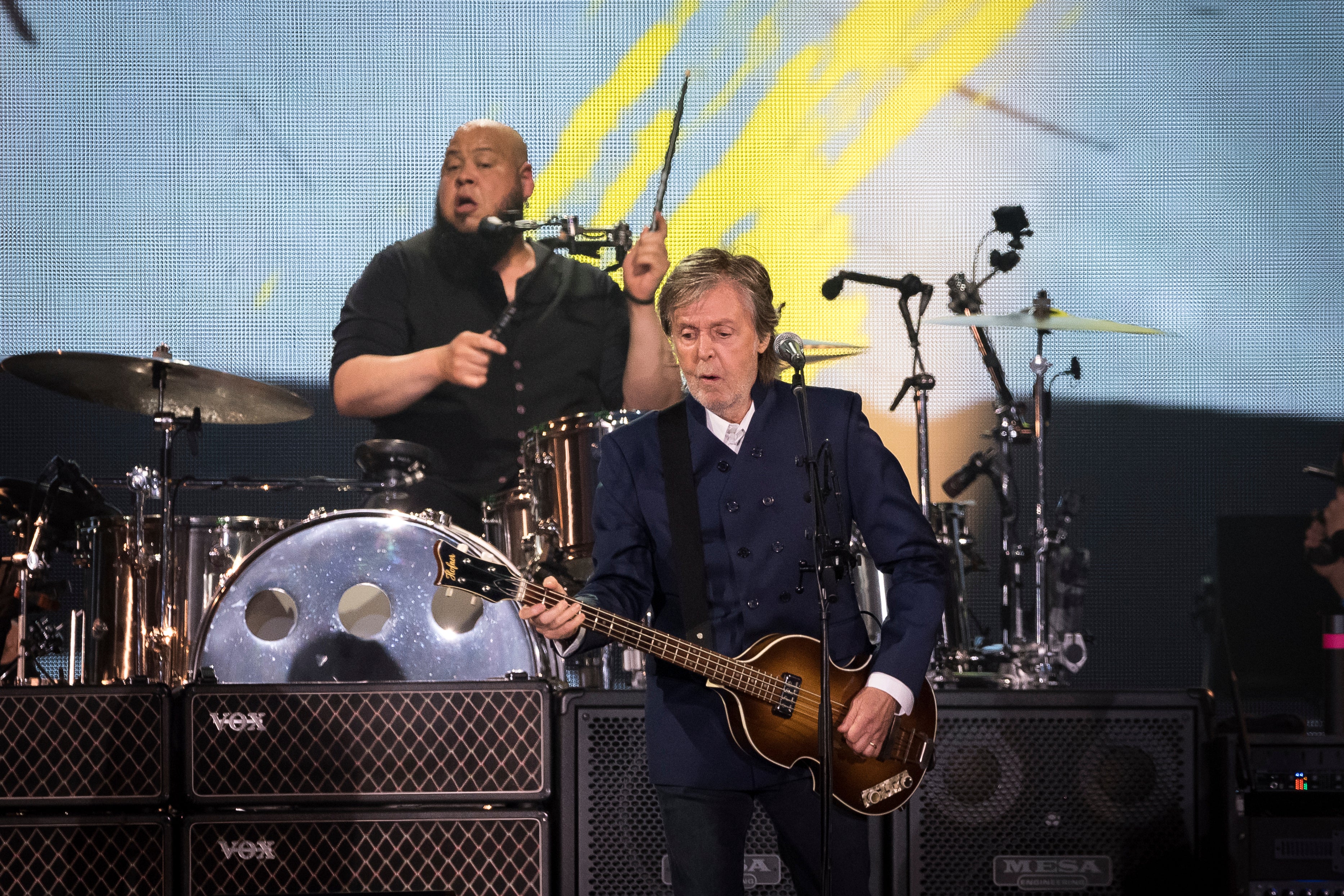Paul McCartney shares ‘embarrassing’ Beatles blunder that made him want to quit
Liverpudlian musician recalled freezing up during early performance
Your support helps us to tell the story
From reproductive rights to climate change to Big Tech, The Independent is on the ground when the story is developing. Whether it's investigating the financials of Elon Musk's pro-Trump PAC or producing our latest documentary, 'The A Word', which shines a light on the American women fighting for reproductive rights, we know how important it is to parse out the facts from the messaging.
At such a critical moment in US history, we need reporters on the ground. Your donation allows us to keep sending journalists to speak to both sides of the story.
The Independent is trusted by Americans across the entire political spectrum. And unlike many other quality news outlets, we choose not to lock Americans out of our reporting and analysis with paywalls. We believe quality journalism should be available to everyone, paid for by those who can afford it.
Your support makes all the difference.Sir Paul McCartney has said he suffered an “embarrassing” onstage blunder early on with The Beatles, which shaped the course of his career.
The 81-year-old served as the band’s lead vocalist alongside John Lennon, while also playing the bass guitar and writing some of their biggest hits including “Love Me Do” and “Yesterday”.
However, when The Beatles first started playing together, McCartney was most interested in being the lead guitarist – and tried his hand at it during their early performances.
In the latest episode of the podcast McCartney: A Life In Lyrics, the Liverpool-born musician recalled playing his first lead guitar solo during a gig when he froze up mid-performance and began to question his career path.
“We had this gig and it was the first thing I ever played, and I was lead guitar player,” he continued. “John [Lennon] was rhythm. I had a solo and I totally froze. Could not move my fingers.”
“It was just so embarrassing. My lead guitar playing career melted at that moment and I said, ‘Well, I’m not doing this again. I’m not cut out for this. I’m no good.’”

The Beatles, also made up of Ringo Starr and George Harrison, were originally formed in 1960, and with McCartney eventually as lead vocalist and bass guitarist, they went on to make generational classics including “Hey Jude” and “I Want to Hold Your Hand”.
Last week, McCartney expressed his joy at Beyoncé’s moving cover of “Blackbird”, the civil rights-inspired song he released with The Beatles in 1968, which features on her new album Cowboy Carter.
The American popstar sings her version of the track with Tanner Adell, Brittney Spencer, Tiera Kennedy and Reyna Roberts, championing the four emerging female country singers.
Enjoy unlimited access to 100 million ad-free songs and podcasts with Amazon Music
Sign up now for a 4 month free trial (3 months for non-Prime members)
Enjoy unlimited access to 100 million ad-free songs and podcasts with Amazon Music
Sign up now for a 4 month free trial (3 months for non-Prime members)
“I am so happy with Beyoncé’s version of my song ‘Blackbird’,” McCartney, 81, said in an Instagram post.
“I think she does a magnificent job of it and it reinforces the civil rights message that inspired me to write the song in the first place.

“I think Beyoncé has done a fab version and would urge anyone who has not heard it yet to check it out. You are going to love it!”
McCartney revealed that he spoke with Beyoncé on FaceTime, where she thanked him for writing the song: “I told her the pleasure was all mine and I thought she had done a killer version of the song.”
He continued: “When I saw the footage on the television in the early Sixties of the Black girls being turned away from school, I found it shocking and I can’t believe that still in these days there are places where this kind of thing is happening right now.
“Anything my song and Beyoncé’s fabulous version can do to ease racial tension would be a great thing and makes me very proud.”
McCartney has previously said he wrote the song after he “heard about the civil rights troubles” that were happening in America during the 1960s, predominantly in the deep south in states like Alabama and Mississippi.
The latest episodes of Paul McCartney: A Life in Lyrics are available on all major streaming platforms.

Join our commenting forum
Join thought-provoking conversations, follow other Independent readers and see their replies
Comments